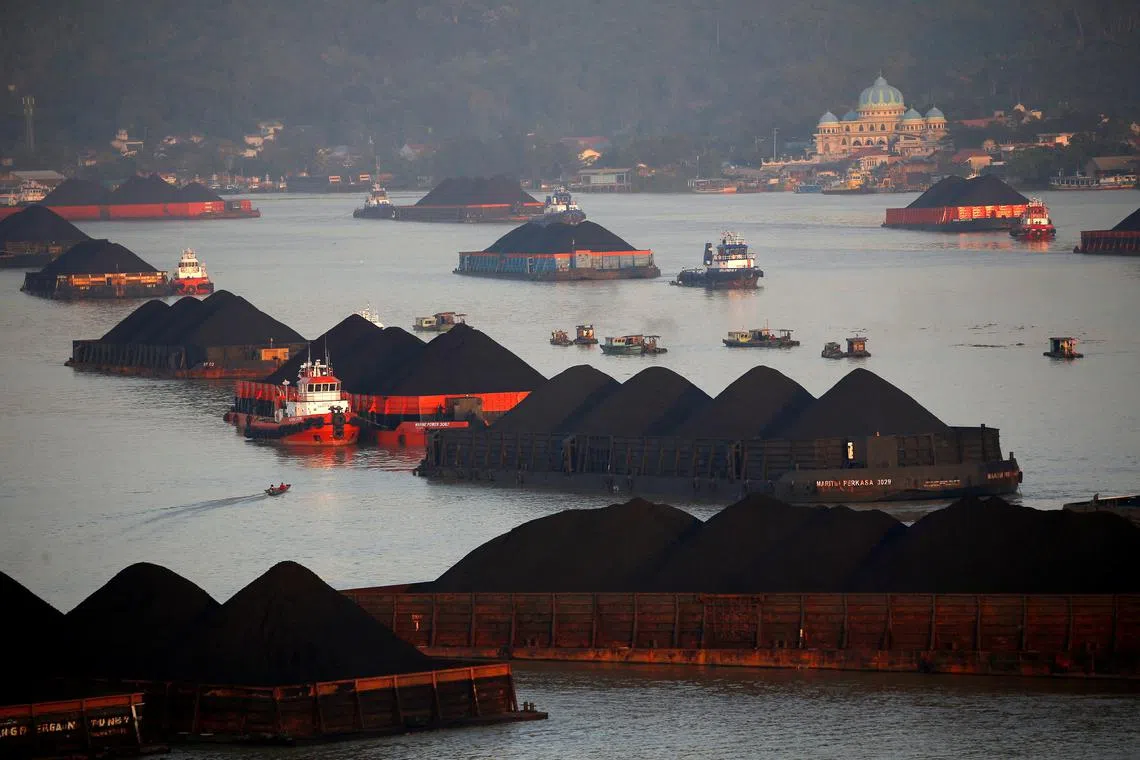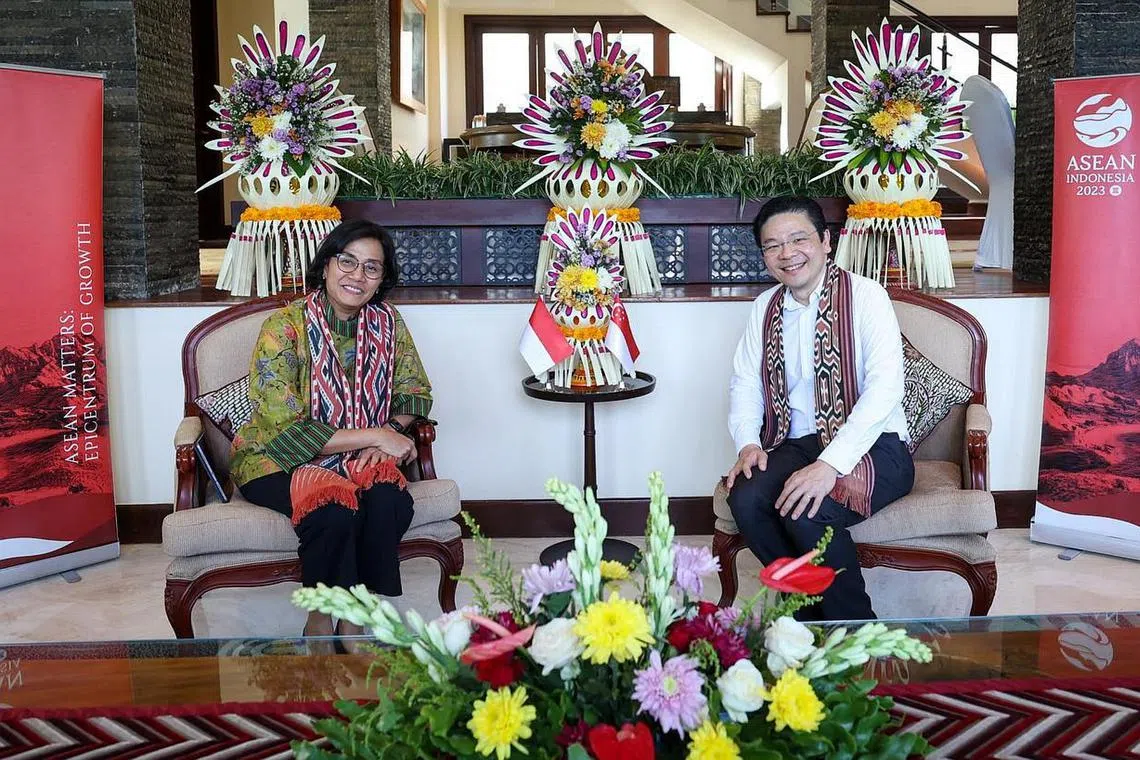Improved framework will help Asean secure funding for sustainable transition projects: Lawrence Wong
Sign up now: Get ST's newsletters delivered to your inbox

Asia-Pacific will require US$3 trillion (S$4 trillion) in green financing a year to reach net-zero emissions by 2050.
PHOTO: REUTERS
SINGAPORE – An improved framework to help Asean member states transition to a greener future will offer a clearer picture of sustainable projects that can benefit from crucial funding, said Deputy Prime Minister Lawrence Wong on Thursday.
“Climate change is obviously an existential threat for all of us... We have to reduce our emissions in order to prevent global warming from happening,” he said in his opening remarks at a ministerial fireside chat in Bali about financing transition in Asean.
“But this process of decarbonisation is very expensive. That is why we are talking about how we can facilitate a more just and affordable transition.”
Mr Wong, who is also finance minister, is on the Indonesian island
The second version of the Asean Taxonomy for Sustainable Finance was released on Monday.
An upgrade from the previous iteration launched in November 2021, it specifies clear conditions under which the phasing out of coal can obtain transition financing – a global first for a regional taxonomy – and also includes criteria for screening the energy sector, encompassing electricity, gas, steam and air-conditioning supply.
Mr Wong said Asia will be at the battlefront of the climate crisis because it is where a lot of the transition needs to happen. He cited McKinsey research showing that the Asia-Pacific will require US$3 trillion (S$4 trillion) in green financing a year to reach net-zero emissions by 2050.
The region can put in place a few building blocks to secure more green financing, he said. First, it needs more data so that financial institutions can better monitor its developments.
It must also have proper disclosures and reporting standards for greater accountability. This will assure financial institutions providing financing that there is no greenwashing – where businesses lead stakeholders into believing that their practices, products or services are more environmentally positive than they actually are.
Definitions are also important, particularly when it comes to transition projects, said Mr Wong. “No one disputes what a green project is, no one disputes what a brown project is, but everything in between is a grey area and has a lot of question marks around it,” he said.
Brown projects such as coal plants are not environmentally sustainable.
Referring to the updated Asean Taxonomy for Sustainable Finance, Mr Wong said: “With this taxonomy in place, we hope it will provide clarity to investors and financial institutions on what are the transition projects taking place in South-east Asia that will allow us to move to a zero-carbon pathway, eventually.
“This will hopefully unlock more transition projects and renewable energy projects within South-east Asian countries, and also enable more cooperation of such renewable energy projects within Asean itself, potentially even as part of an Asean power grid in the future.”
The bloc will eventually also have to consider how its taxonomy operates with others around the world, he said. “We must ensure some form of interoperability between them, so that when a global financial institution does some financing for a transition project, (it) can be assured of certain consistency across different jurisdictions.”
Singapore will also do its part in these financing activities, said Mr Wong. “As a financial centre, we feel a role and a responsibility to do everything we can to catalyse more private financing for transition projects all over South-east Asia.”

DPM Lawrence Wong met with Indonesian Finance Minister Sri Mulyani Indrawati in Bali, Indonesia, on March 30, 2023.
PHOTO: LAWRENCE WONG/FACEBOOK
Indonesian Finance Minister Sri Mulyani Indrawati said a just and affordable green transition must factor in the sustainability of companies’ balance sheets and the impact of projects on populations.
There is also a need to find suitable forms of renewable energy that can attract investors, she said, adding that the global regulatory framework needs to be aligned on financing for coal reduction.
Thai Finance Minister Arkhom Termpittayapaisith said individual countries need to be quick to react to tackle climate change, but Asean also needs common goals and a platform for collaboration, especially since issues such as carbon emissions transcend borders.
Mr Arkhom and Mr Wong on Thursday also discussed macroeconomic developments, and opportunities for bilateral and regional cooperation in areas like energy, infrastructure and financial connectivity.
Mr Wong tweeted on Thursday evening that he had good discussions with Dr Sri Mulyani about global and regional developments and the socio-economic situation in their countries.
“Look forward to enhancing cooperation in infrastructure, renewable energy and the digital economy, for the benefit of our countries and Asean,” he said.
Mr Wong also met the EU-Asean Business Council. He said on Twitter that firms play an important role for Asean to grow. “Hence we value the longstanding partnership with (European Union) companies, and look forward to even closer collaboration in the green and digital economies going forward.”



